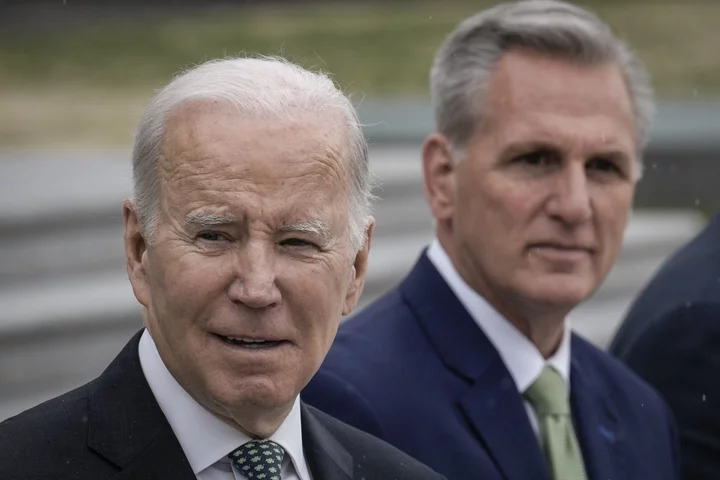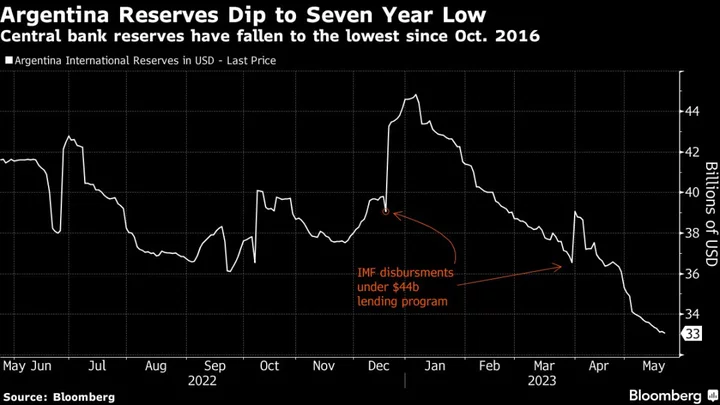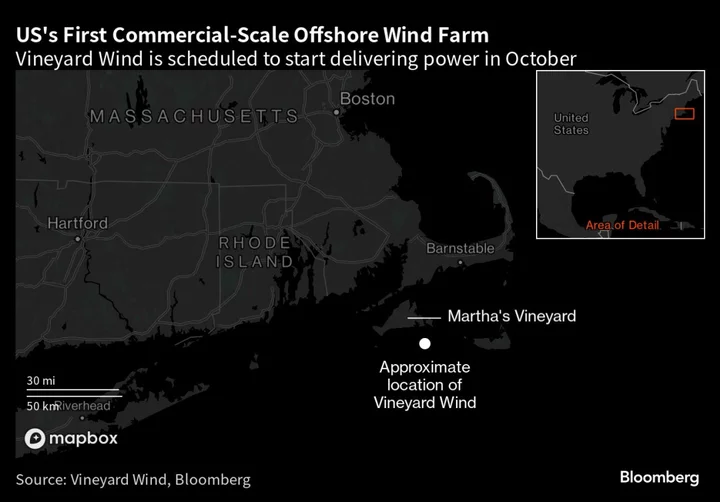President Joe Biden and House Speaker Kevin McCarthy compromised on bitterly contested disputes over federal spending and assistance for the poor as part of their debt-limit deal. They must now sell the deal to lawmakers from both parties.
Here’s a look at the most contentious and economically consequential provisions of the agreement they unveiled on Saturday, just days before the Treasury is projected to run out of cash on June 5.
Debt-Limit Suspension
The deal suspends the debt ceiling, effectively giving Treasury unfettered borrowing authority for another two years before another debt-ceiling increase would need congressional approval. That would be a win for Democrats — especially Biden, who wouldn’t have to face another debt-limit battle before seeking reelection next year.
Discretionary Spending
The negotiators agreed to keep non-defense spending roughly flat next year and increase it by just 1% in 2025, one person familiar with the deal said. The deal puts limits on what’s known as discretionary spending, the money Congress appropriates each year to fund federal agencies and programs. The restrictions don’t apply to mandatory programs like Medicare and Social Security.
Defense spending would rise next year by 3.3%, as Biden requested in his proposed budget. That is below the rate of inflation so doesn’t meet Republican defense hawks’ aspirations for a military build-up. But it is a break from the 2011 debt-limit deal, in which spending caps were equitably applied to defense and non-defense spending.
The deal means that many federal programs will face budget cuts next year since there will be no increase to account for inflation. Congress always has the authority to approve more spending in case of an unexpected event, such as a war or pandemic.
Work Requirements
The deal calls for a phased-in expansion of work requirements to apply to older recipients of food stamps, formally known as Supplemental Nutrition Assistance Program, or SNAP. Work requirements for food assistance would eventually apply up to age 54, instead of age 49, as current law requires.
The White House says it scored a win by gaining exceptions for veterans and vulnerable groups such as homeless people. And the administration also claims as a win a provision that would end the tougher work requirements in 2030 without additional action by Congress
But the stricter work standards are a win for Republicans, who pushed for additional work rules for adults seeking anti-poverty assistance. They say this would save money by reducing the number of people who receive benefits from those programs.
However, this portion of the deal is likely to cause some progressive Democrats, who don’t want to kick low-income Americans off social programs, to oppose the deal.
Author: Laura Davison, Josh Wingrove and Jennifer Jacobs









